The Killing Fields is a 1984 British biographical drama film about the Khmer Rouge regime in Cambodia, which is based on the experiences of two journalists: Cambodian Dith Pran and American Sydney Schanberg. It was directed by Roland Joffé and produced by David Puttnam for his company Goldcrest Films. Sam Waterston stars as Schanberg, Haing S. Ngor as Pran, Julian Sands as Jon Swain, and John Malkovich as Al Rockoff. The adaptation for the screen was written by Bruce Robinson; the musical score was written by Mike Oldfield and orchestrated by David Bedford.
| The Killing Fields | |
|---|---|
Theatrical release poster | |
| Directed by | Roland Joffé |
| Produced by |
|
| Screenplay by | Bruce Robinson |
| Based on | The Death and Life of Dith Pran by Sydney Schanberg |
| Starring |
|
| Music by | Mike Oldfield |
| Cinematography | Chris Menges |
| Edited by | Jim Clark |
Production company |
|
| Distributed by |
|
Release date |
|
Running time | 141 minutes |
| Country | United Kingdom |
| Language |
|
| Budget | $14.4 million |
| Box office | $34.7 million |
The film was a success at the box office as well as being an instant hit with critics. At the 57th Academy Awards it received seven Oscar nominations, including Best Picture; it won three, most notably Best Supporting Actor for Haing S. Ngor, who had had no previous acting experience. At the 38th British Academy Film Awards, it won eight BAFTAs, including Best Film and Best Actor in a Leading Role for Ngor.
In 1999 the British Film Institute voted The Killing Fields the 100th greatest British film of the 20th century. In 2016 British film magazine Empire ranked it number 86 in their list of the 100 best British films.
Screenplay
In the Cambodian capital, Phnom Penh, during May 1973, the Cambodian national army is fighting a civil war with the Khmer Rouge, a result of the Vietnam War overspilling that country's borders. Dith Pran, a Cambodian journalist and interpreter for The New York Times, awaits the arrival of reporter Sydney Schanberg at the city's airport but leaves suddenly. Schanberg takes a cab to his hotel where he meets up with Al Rockoff. Pran meets Schanberg later and tells him that an incident has occurred in a town, Neak Leung; allegedly, an American B-52 has bombed the town.
Schanberg and Pran go to Neak Leung where they find that the town has been bombed. Schanberg and Pran are arrested when they try to photograph the execution of two Khmer Rouge operatives. They are eventually released and Schanberg is furious when the international press corps arrives with the U.S. Army.
Two years later, in 1975, the Phnom Penh embassies are being evacuated in anticipation of the arrival of the Khmer Rouge. Schanberg secures evacuation for Pran, his wife and their four children. However, Pran insists on staying behind to help Schanberg.
The Khmer Rouge move into the capital, ostensibly in peace. During a parade through the city, Schanberg meets Rockoff. They are later met by a detachment of the Khmer Rouge, who immediately arrest them. The group is taken through the city to a back alley where prisoners are being held and executed. Pran, unharmed because he is a Cambodian civilian, negotiates to spare the lives of his friends. They do not leave Phnom Penh, but instead retreat to the French embassy.
Informed that the Khmer Rouge have ordered all Cambodian citizens in the embassy to be handed over and fearing the embassy will be overrun, the embassies comply. Knowing that Pran will be imprisoned or killed, Rockoff and fellow photographer Jon Swain of The Sunday Times try to forge a British passport for Pran; the deception fails when the image of Pran on the passport photo fades to nothing, as they lack adequate photographic developer. Pran is turned over to the Khmer Rouge and is forced to live under their totalitarian regime.
Several months after returning to New York City, Schanberg is in the midst of a personal campaign to locate Pran. In Cambodia, Pran has become a forced labourer under the Khmer Rouge's "Year Zero" policy, a return to the agrarian ways of the past. Pran is also forced to attend propagandist classes where many undergo re-education. As intellectuals are made to disappear, Pran feigns simple-mindedness. Eventually, he tries to escape, but is recaptured. Before he is found by members of the Khmer Rouge, he slips into a muddy cesspool filled with rotting human corpses; in doing so, he stumbles upon one of the infamous killing fields of the Pol Pot regime, where as many as 2 million Cambodian citizens were murdered.
In 1976 Sydney Schanberg is awarded a Pulitzer prize for his coverage of the Cambodian conflict. At the acceptance dinner he tells the audience that half the recognition for the award belongs to Pran. Later in the restroom, he is confronted by Rockoff, who harshly accuses him of not doing enough to locate Pran and for using his friend to win the award. Schanberg defends his efforts, saying that he has contacted every humanitarian relief agency possible in the time since Pran's disappearance. Rockoff suggests that Schanberg subtly pressured Pran to remain in Cambodia because Pran was so vital to Schanberg's work. This accusation hits close to home, and Schanberg begins to wonder whether he put his own self-interest ahead of Pran's safety. He finally confesses that Pran "stayed because I wanted him to stay".
Pran is assigned to the leader of a different prison compound, a man named Phat, and charged mostly with tending to his little boy. Pran continues his self-imposed discipline of behaving as an uneducated peasant, despite several of Phat's attempts to trick him into revealing his knowledge of both French and English. Phat begins to trust Pran and asks him to take ward of his son in the event that he is killed. The Khmer Rouge are now engaged in a border war with Vietnam. The conflict reaches Pran's region and a battle ensues between the Khmer Rouge of the compound and two jets sent to destroy the camp. After the skirmish has ended, Pran discovers that Phat's son has American money and a map leading to safety. When Phat tries to stop the younger Khmer Rouge officers from killing several of his comrades, he is ignominiously shot.
In the confusion, Pran escapes with four other prisoners and they begin a long trek through the jungle with Phat's young son. The group later splits and three of them head in a different direction; Pran continues following the map with the fourth man. However, Pran's companion activates a hidden land mine while holding the boy. As Pran pleads with the man to give him the boy, the mine goes off, killing the pair. Pran mourns for a time and continues on. One day he crests the escarpment of the Dângrêk Mountains and sees a Red Cross camp near the border of Thailand.
The scene shifts to Schanberg calling Pran's family with the news that Pran is alive and safe. Soon after, Schanberg travels to the Red Cross camp and is reunited with Pran. He asks Pran to forgive him; Pran answers, with a smile, "Nothing to forgive, Sydney", as the two embrace.
- Sam Waterston as Sydney Schanberg
- Haing S. Ngor as Dith Pran
- John Malkovich as Al Rockoff
- Julian Sands as Jon Swain
- Craig T. Nelson as Military Attache
- Spalding Gray as U.S. Consul
- Bill Paterson as Dr MacEntire
- Athol Fugard as Dr Sundesval
- Graham Kennedy as Dougal
- Patrick Malahide as Morgan
- Nell Campbell as Beth
- Joanna Merlin as Schanberg's Sister
In an interview with The Guardian in November 2014, Joffe said:
David Puttnam asked to see me, which in those days was a bit like being invited out to Hollywood. He gave me Bruce Robinson's script, which was enormous, but it was so full of passion and energy I couldn't put it down. I'd heard about Cambodia and the Khmer Rouge, but didn't know much until I read it. I wrote to David saying that whoever made the film would have to be careful because it wasn't just a war story: it was about human connection, how friendships are born and what they do to us. I didn't hear from him for six months, then we bumped into one another and he said he'd interviewed most of the directors in the world – including some very big names who would make the studios happy – but no one had really understood it. "You're the only man who has," he said.
In the same interview actor Julian Sands said:
Roland's audition process was extraordinary. I was 24 and I've never come across anything as rigorous since. He was looking to put together a troupe of actors without much film experience, because he wanted the freshness of everything to resonate with us. He would gather lots of us in his office to improvise scenes. After about a month, he had a group he found interesting. John Malkovich, Sam Waterston and Haing S. Ngor weren't subject to that, but their meetings with him were still pretty intense. A lot was made of the fact that Haing hadn't acted before, but John put it differently: he said Haing had been acting his whole life – you had to be a pretty good actor to survive the Khmer Rouge.
The Killing Fields holds a 93% rating at the review aggregator Rotten Tomatoes, based on 40 reviews from notable publications. Critic Roger Ebert wrote in the Chicago Sun-Times: "The film is a masterful achievement on all the technical levels—it does an especially good job of convincing us with its Asian locations—but the best moments are the human ones, the conversations, the exchanges of trust, the waiting around, the sudden fear, the quick bursts of violence, the desperation."
Accolades
Academy Awards
- Best Picture (David Puttnam) - Nominated
- Best Director (Roland Joffé) - Nominated
- Best Actor (Sam Waterston) - Nominated
- Best Supporting Actor (Haing S. Ngor) - Won
- Best Adapted Screenplay (Bruce Robinson) - Nominated
- Best Cinematography (Chris Menges) - Won
- Best Film Editing (Jim Clark) - Won
British Academy Film Awards
- Best Film (David Puttnam) - Won
- Best Direction (Roland Joffé) - Nominated
- Actor in a Leading Role (Haing S. Ngor) - Won
- Actor in a Leading Role (Sam Waterston) - Nominated
- Most Promising Newcomer to Leading Film Roles (Haing S. Ngor) - Won
- Best Adapted Screenplay (Bruce Robinson) - Won
- Best Film Music (Mike Oldfield) - Nominated
- Best Cinematography (Chris Menges) - Won
- Best Production Design (Roy Walker) - Won
- Best Editing (Jim Clark) - Won
- Best Sound (Ian Fuller, Clive Winter, Bill Rowe) - Won
- Best Special Visual Effects (Fred Cramer) - Nominated
- Best Makeup and Hair (Tommie Manderson) - Nominated
Golden Globe Awards
- Best Motion Picture - Drama (David Puttnam) - Nominated
- Best Director (Roland Joffé) - Nominated
- Best Actor - Motion Picture Drama (Sam Waterston) - Nominated
- Best Supporting Actor - Motion Picture (Haing S. Ngor) - Won
- Best Screenplay (Bruce Robinson) - Nominated
- Best Original Score (Mike Oldfield) - Nominated
Other
- Eddie Award (Jim Clark) - Nominated
- Boston Society of Film Critics Award for Best Film - Won
- Boston Society of Film Critics Award for Best Actor (Haing S. Ngor) - Won
- Boston Society of Film Critics Award for Best Supporting Actor (John Malkovich) - Won
- Boston Society of Film Critics Award for Best Cinematography (Chris Menges) - Won
- British Society of Cinematographers Award for Best Cinematography (Chris Menges) - Won
- César Award for Best Foreign Film (Roland Joffé) - Nominated
- David di Donatello for Best Foreign Producer (David Puttnam) - Won
- David di Donatello for Best Foreign Director (Roland Joffé) - Nominated
- David di Donatello for Best Foreign Film - Nominated
- Directors Guild of America Award for Outstanding Director - Feature Film (Roland Joffé) - Nominated
- Guild of German Art House Cinemas Award for Best Foreign Film (Roland Joffé) - Won
- London Film Critics Circle Award for Director of the Year (Roland Joffé) - Won
- Los Angeles Film Critics Association Award for Best Supporting Actor (John Malkovich) - 2nd place
- Los Angeles Film Critics Association Award for Best Cinematography (Chris Menges) - Won
- National Board of Review: Top Ten Films - Won
- National Society of Film Critics Award for Best Supporting Actor (John Malkovich) - Won
- National Society of Film Critics Award for Best Cinematography (Chris Menges) - Won
- New York Film Critics Circle Award for Best Cinematographer (Chris Menges) - Won
- New York Film Critics Circle Award for Best Film - 2nd place
- Political Film Society Special Award - Won
- Writers Guild of America Award for Best Adapted Screenplay (Bruce Robinson) - Won
Besides its place as 100th on the BFI Top 100 British films list, The Killing Fields is also 30th on Channel 4's list of the 100 Greatest Tearjerkers, and 60th on the AFI's 100 Years...100 Cheers list.
The Killing Fields was released on DVD by Umbrella Entertainment in Australia in March 2010. The DVD includes special features such as the theatrical trailer, audio commentary with Roland Jof
Watch movie The Killing Fields Film online on Amazon
Watch movie The Killing Fields Film online
Watch The Movie On PrimeBhool Bhulaiyaa Full HD Movie Download
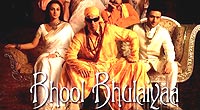
Singapore Full HD Movie Download

Sampoorna Ramayana Full HD Movie Download
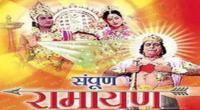
Waqt Ki Deewar Full HD Movie Download
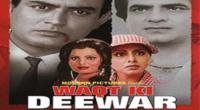
Aakhri Adalat Full HD Movie Download
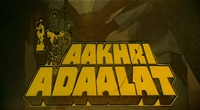
Gunahon Ka Faisla Full HD Movie Download
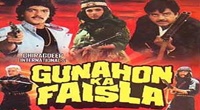
Ganda Hendathi Full HD Movie Download

Mate Anidela Lakhe Phaguna Full HD Movie Download
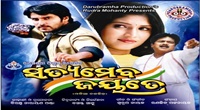
Asa Mi Tasa Mi Full HD Movie Download
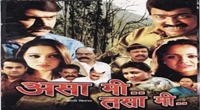
Charminar Boys Full HD Movie Download
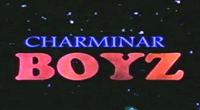
Mazhe Saubhagya Full HD Movie Download
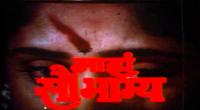
Angakkuri Full HD Movie Download

Adikkurippu Full HD Movie Download

Dhum Full HD Movie Download
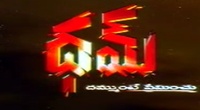
Dhanush Full HD Movie Download

Pasupu Thadu Full HD Movie Download
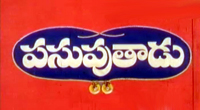
Jai Santoshi Mata Full HD Movie Download
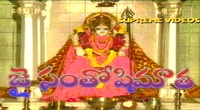
Sampradayam Full HD Movie Download
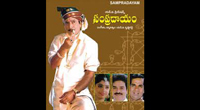
Kula Gothralu Full HD Movie Download
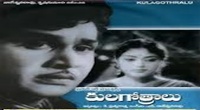
Anand Ashram Full HD Movie Download
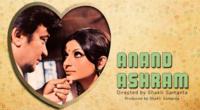
Faasle Full HD Movie Download
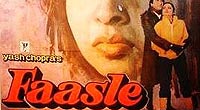
Download latest Movie from bollywood
- 1> baaghi 3
- 2> THE SKY IS PINK MOVIE FULL STORY AND REVIEW
- 3> Luka Chuppi
- 4> TO ALL THE BOYS I’VE LOVED BEFORE
- 5> Kabir Singh
- 6> Street Dancer 3D
- 7> Simmba
- 8> Gone Girl
- 9> The Girl Who Lived
- 10> Ludo
- 11> DILWALE DULHANIA LE JAYENGE
- 12> GUILTY
- 13> The Godfather
- 14> Adventures of Rusty
- 15> Sooryavanshi
- 16> Satyameva Jayate 2
- 17> Thappad
- 18> Bhool Bhulaiyaa 2
- 19> KGFChapter 2
- 20> Mardaani 2
- 21> Pinjar
- 22> Shivaji maharaj
- 23> Ek Villian 2
- 24> Hungama 2
- 25> Divergent
- 26> Mumbai Saga
- 27> The Internship
- 28> HIT (telugu)
- 29> Panga
- 30> The perfect date
- 31> 16 December
- 32> Gopala Gopala (Telugu)
- 33> Brahmastra
- 34> Gangubai Kathiawadi
- 35> Manmadhudu
- 36> Nenu local
- 37> Mahanati
- 38> Shatamanam bavathi
- 39> Lagaan
- 40> After
- 41> MOM
- 42> Shamshera
- 43> Raguvaran BTech
- 44> Khakee
- 45> The villain
- 46> OM
- 47> Mr. perfect
- 48> Bueatifull mind
- 49> Hichki
- 50> Gabbar Singh
- 51> Jogi
- 52> Before Sunrise
- 53> Before Sunset
- 54> Before Midnight
- 55> The Big Bull
- 56> Top Gun: Maverick
- 57> The Purge
- 58> The Sky is Pink
- 59> Laxmmi Bomb
- 60> Sadak 2
- 61> Sufna
- 62> Prithviraj
- 63> PK
- 64> Coolie No 1(2020)
- 65> Black Widow
- 66> Dear Zindagi
- 67> Dil Bechara
- 68> PHIR HERA PHERI
- 69> WAR
- 70> Dostana
- 71> RRR: Roudram Ranam Rudhiram
- 72> Maidan
- 73> Dabbang 3
- 74> Chhalaang
- 75> life as we know it
- 76> SherShaah
- 77> Sandeep Aur Pinky Faraar
- 78> Event Horizon
- 79> 83
- 80> Radhe: Your Most Wanted Bhai
- 81> Gunjan Saxena: The Kargil Girl
- 82> Mr India
- 83> Vivah
- 84> Anokha Bandhan
- 85> Ghost
- 86> Bhoot: Part One - The Haunted Ship
- 87> Haseen Dilruba
- 88> Laal Singh Chaddha
- 89> Qismat
- 90> Rajput
- 91> Drive
- 92> Dil Chahta Hai
- 93> Dil Ki Baazi
- 94> Dil Ka Rishta
- 95> Teesri Manzil
- 96> Dil
- 97> Love Aaj Kal
- 98> Khaali Peeli
- 99> Bunty Aur Babli 2
- 100> Atrangi Re
- 101> Gulabo Sitabo
- 102> Jodi
- 103> Suraj Pe Mangal Bhari
- 104> Deewana
- 105> Attack
- 106> Sardar Udham Singh
- 107> Toofan
- 108> THE LOVEBIRDS
- 109> Jersey
- 110> Ginny Weds Sunny
- 111> Thalaivi
- 112> Shiddat
- 113> Angels vs Zombies
- 114> Koi Mil Gya
- 115> Thank God
- 116> Bhuj: The Pride of India
- 117> Hum Aapke Hain Kaun
- 118> The Platform
- 119> Bird Box
- 120> Roohi Afzana
- 121> Torbaaz
- 122> Nikamma
- 123> World War Z
- 124> Extraction
- 125> Train to Busan
- 126> Life of Pi
- 127> SHAADI MEIN JROOR AANA
- 128> Himmat Aur Mehnat
- 129> To All The Boys: P.S. I Still Love You
- 130> Mimi
- 131> Good Newwz
- 132> Shubh Mangal Zyada Saavdhan
- 133> Raabta
- 134> Harry Potter and the Philosopher's Stone
- 135> Harry Potter and the Chamber of Secrets
- 136> Chhapaak
- 137> War of the Worlds
- 138> Harry Potter and the Prisoner of Azkaban
- 139> Harry Potter and the Goblet of Fire
- 140> MURDER MYSTERY
- 141> Shakuntala Devi
- 142> Bachchan Pandey
- 143> Jayeshbhai Jordar
- 144> Sheer Qorma
- 145> Saina
- 146> 'O' Pushpa I hate tears
- 147> Kedarnath
- 148> MS Dhoni The Untold Story
- 149> Chhichhore
- 150> Badhaai Ho
- 151> Unstoppable
- 152> Oz the Great And Powerful
- 153> The Girl on the Train
- 154> Haathi Mere Saathi 2020
- 155> The Conjuring: The Devil Made Me Do It
- 156> Gandhi Se Pehle Gandhi
- 157> The Song of Scorpions
- 158> Srimanthudu
- 159> Hello Guru Prema Kosame
- 160> Beauty and The Beast
- 161> Black Panther
- 162> Charlie and the Chocolate Factory
- 163> Bole Chudiyan
- 164> Fidaa
- 165> Duvvada Jagannadham
- 166> Bruce Lee: The Fighter
- 167> Hyper
- 168> Yaara
- 169> Red (2020)
- 170> Shivam
- 171> That Is Mahalakshmi
- 172> Nishabdham
- 173> Aashram 2020 web series
- 174> Laxmii
- 175> Mismatched
- 176> STUDENT OF THE YEAR 2
- 177> NAIL POLISH
- 178> Ramprasad Ki Tehrvi
- 179> KAAGAZ
- 180> 12 o Clock
- 181> The Power
- 182> bolo hau
- 183> Tribhanga
- 184> JAMUN
- 185> Madam Chief Minister
- 186> Maasaab
- 187> Aadhaar
- 188> Tanhaji
- 189> Bhaagi 3
- 190> Bhootnath
- 191> MALANG
- 192> Jai Mummy Di
- 193> Haathi Mere Saathi 2021
- 194> Shakeela
- 195> Unpaused
- 196> Annayya
- 197> Vamsoddharakudu
- 198> Mrugaraju
- 199> Narasimha Naidu
- 200> Sankranti
- 201> Manasu Maata Vinadhu
- 202> Anjaane
- 203> Apaharan
- 204> Bachke Rehna Re Baba
- 205> Bewafaa
- 206> Roohi
- 207> Radhe
- 208> Zindagi Khoobsoorat Hai
- 209> Yeh Mohabbat Hai
- 210> Yeh Kya Ho Raha Hai?
- 211> The Tomorrow War
- 212> DehradunDiary
- 213> Meri Shaadi Karaoo
- 214> Matruu Ki Bijlee Ka Mandola
- 215> No One Killed Jesica
- 216> Aag Ka Goola
- 217> Eight Million Dollars
- 218> Three Hundred
- 219> Cats and Dog
- 220> Decoy
- 221> Gold Rush
- 222> You Have Got Mail
- 223> Final Destination three
- 224> Tofan
- 225> Jungle
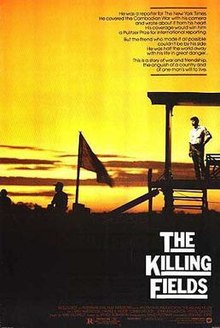 Story of movie The Killing Fields Film :
Story of movie The Killing Fields Film : 